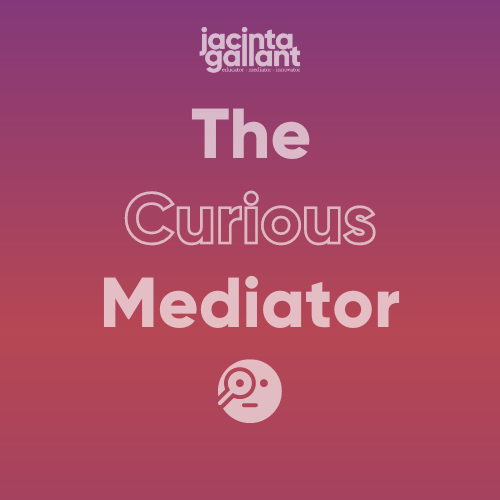Written by My Collaborative Team member Jacinta Gallant
All of us have struggled in those moments when destructive conflict behaviours get in the way of the productive discussions we need in order to “do our job”. We feel a lot of pressure to do something to make it stop – which often leads to more resistance!
So how is the Insight Approach help us do better work?
The insight Approach to Conflict is built on a learning theory that says when people are feeling defensive, they are feeling threatened – and they are NOT open to learning anything new. Examples abound in our work:
- Expressions of frustration, anger, exasperation, “emotional flooding”
- resistance to self-reflection about my perspective and experience
- a lack of openness to reflecting on the perspective of my “ex”
- shutting down, shutting out, blaming others (or all three)
When this happens, our dominant interest-based model urges us to try and shift people way from their demands/positions and into productive problem solving. But how effective is this problem-solving focus when people are “losing it”? is there a better way?
The Insight approach pays attention to the neuroscience (something our coaches know all about!):
When people are feeling defensive, they're unable
to open up to learning and no amount of telling,
nudging, redirecting or advising is going to
make a difference until they can calm.
When we notice defensiveness, it is NOT the time to try to direct people forward. Instead, we respond with targetted curiosity.
Now is the time to focus in on the threat
causing the destructive behaviour (Yikes!?)
The Insight Approach teaches skills and strategies to help reveal and work with threats productively - without scaring ourselves or others! This model makes room for the emotion in the room, because our response will help reveal what is feeling threatened that matters so much, so we can work productively to manage it. This helps people open up dialogue so they can explore a future which might not be so threatening.
The Insight approach is our next paradigm shift. Dr. Cheryl Picard developed it and she should be famous already, but she is not (yet). Many of us are building a community of Insight Practitioners within our collaborative community. We are integrating neuroscience, social theory and learning theory into our way of being and doing. Heck - even William Ury acknowledges that the IBN model fails to address the emotions and behaviours that inevitably show up in conflict. His new book, Possible, is all about doing more listening and less telling!
I am happy to share that the Insight Approach is what we will cover in the upcoming Curious Mediator course. I invite you to join the Curious Mediator this Fall, starting September 18th and running for ten consecutive weeks. Learn more here:




I’ll be in the cohort with Jacinta starting September 18th, to continue to deepen my own paradigm shift. If you were intrigued by the program last Thursday with me and David Fink and Kerry Wallis, or our conversation at the happy hour on Friday, this is a perfect place to learn how to incorporate these ideas into your practice. These are next-level tools that will help us all do a better job for our clients, and as importantly make our work more satisfying — becasue it will be easier.
Jacinta, although I am trying to retire I was interested in your Curious Mediator course. Sadly because of upcoming vacation trip I would have to miss the first three weeks of the course. I would like to order five of your Our Family in Two Homes workbooks. Can you please either get with Colleen or have someone else get in touch with me.
Although I am not seeking collaborative cases
because of my past legwork I have had some calls and I may need so workbooks.
I saw you at Club call yesterday. I do hope things are going well for you.